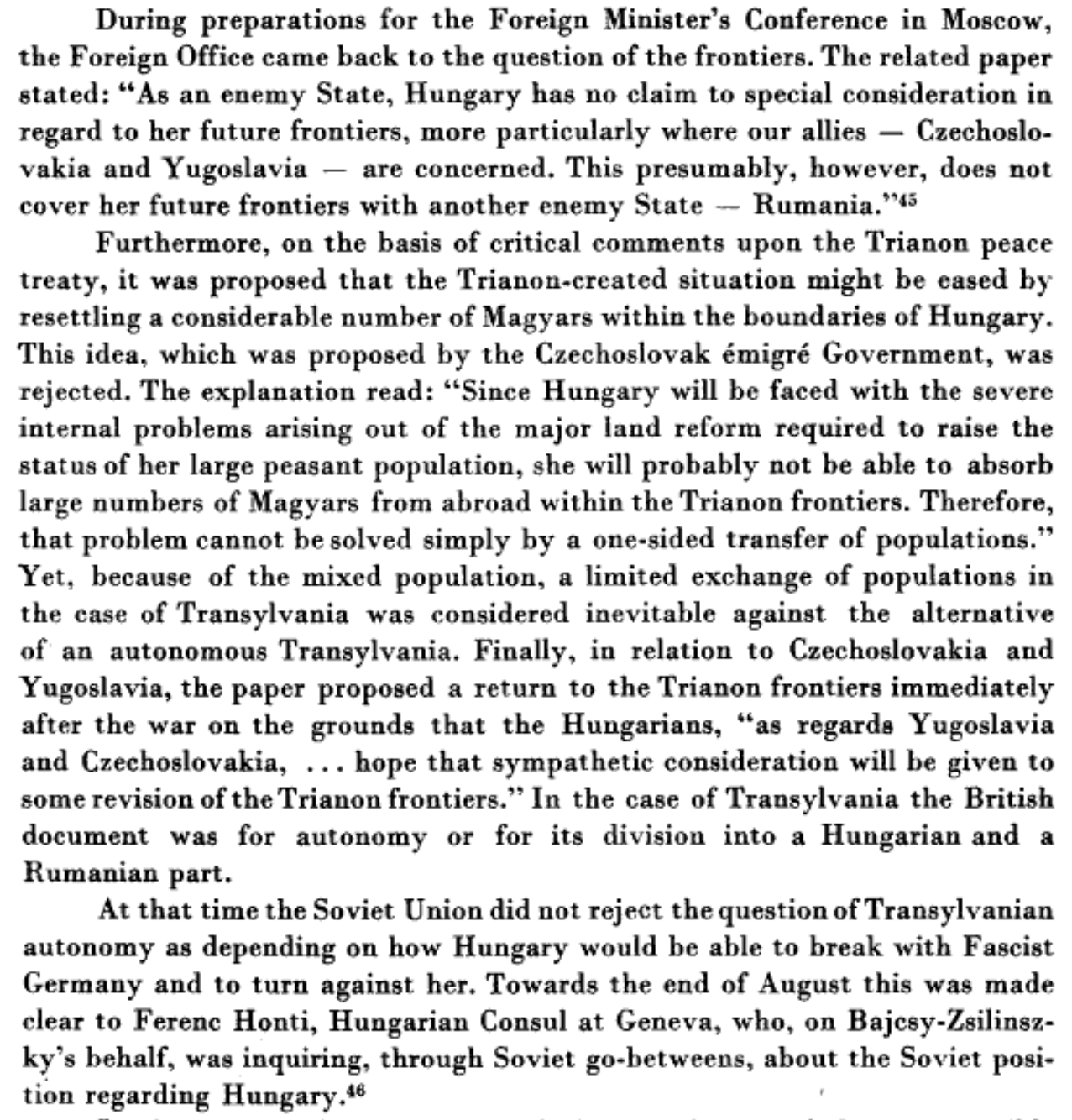So I was doing some reading regarding Hungary in WW2 and found some interesting concessions in discussions of September of 1943

From my understanding, it seemed as though the British were in favor of revising much of the territorial acquisitions Hungary has made since the first Vienna award and that is opposed to returning to the former Trianon borders. It also mentions a division of Transylvania between Hungary and Romania; would this simply be a confirmation of the second Vienna award?
"...revising much of the territorial acquisitions Hungary has made since the first Vienna award..." is a little difficult to parse, but yeah: seems like if Miklós Horthy had successfully switched sides to the Allies the British would've wanted Hungary to keep a decent amount of what they'd annexed from their neighbors. Personally I'd say that retaining the Second Vienna Award was most likely. First Vienna Award, less so given that the Munich Agreement had already been repudiated, but there might've at least been a referendum (absolutely not including Košice, though). As for Hungary's annexations of Yugoslav territory, I think the only part they could've plausibly kept would be Subotica.
Well, the First Vienna Award was a direct consequence of the Munich Agreement, and any nullification of the Munich Agreement has really no effect on the FVA. The British were quite aware that a population exchange wasn't applicable to Hungary and Slovakia, so I can very much see them keeping much of the ethnic Hungarian land, and returning the Slovakian land back. The passage never mentions Subcarpathia, I'd assume that even with a Hungarian capitulation to the Allies early and immediate switch-over to aggression against Nazi Germany, the Soviets would've still taken Subcarpathia, or at least the Ukrainian side? The problem of Transylvania really depends on the Soviets all things considered. The British knew they had little to no diplomatic leverage over the status of the territory. Who knows if the Romanian coup would've still happened had Hungary switched over and if that would've had any effect on Transylvania. As for Yugoslavia, the partisans weren't very prominent within the Hungarian occupied zone and the flat terrain made it extremely difficult for any type of guerilla tactics. It was planned that once Hungary switched sides they'd offer support to Tito and the partisans. Maybe the switch of Hungary would prompt Churchill's planned Balkan invasion in which a significant advantage would be employed on the future of Yugoslavia and its government?
Okay, maybe I'm reading it wrong, but I don't see anything in the quoted image to even remotely suggest the British were considering letting Hungary keep territories acquired from Slovakia and Yugoslavia.
The quoted image says the Foreign Office (that is the British foreign office) did up a paper which explicitly is quoted as saying that as a defeated enemy state Hungary has no special considerations in regards to her future frontier particularly with regards to the British allies of Czechoslovakia and Yugoslavia, but that this does not necessarily hold with regards to Romania as another defeated enemy state. It later states that the British Foreign Office's paper on the subject proposed the immediate return to Trianon borders for Hungary in relation to Czechoslovakia and Yugoslavia with the allusion that this would be disabuse the Hungarians of even the faintest ideas that special consideration would be given to revision of the Trianon frontiers.
The only possible non-Trianon boundaries envisioned are clearly only with Romania.
